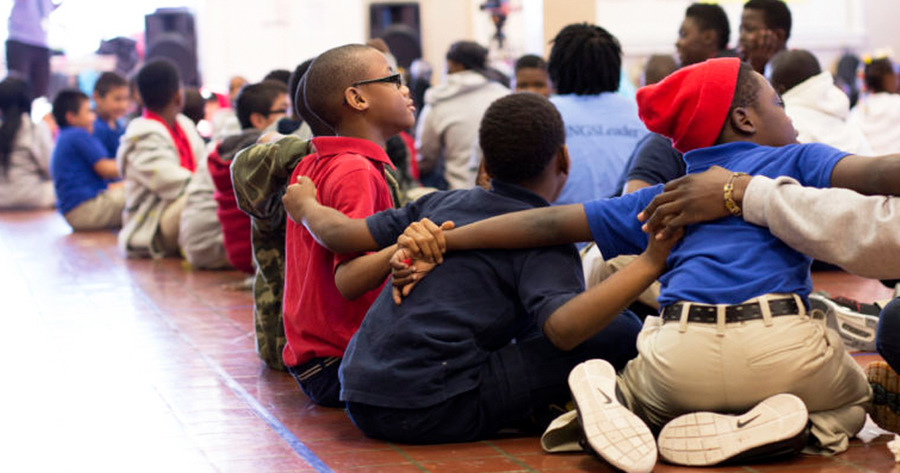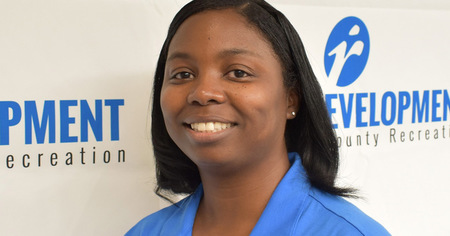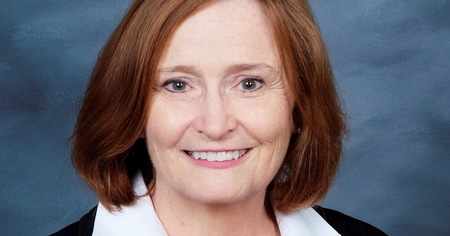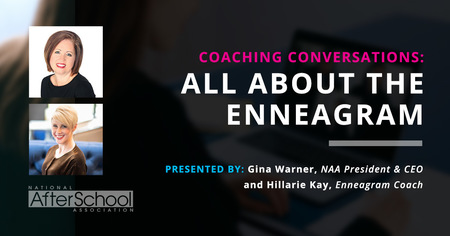Take a look at any of the numerous reports or research studies that show the positive effects of afterschool programs—or better yet, talk to an afterschool professional in any local program—and you'll quickly understand that afterschool is important for kids to learn, grow and be safe.
Likewise, social and emotional learning (SEL) is a critical part of every kid's development. Through SEL, kids learn how to manage their emotions, set and achieve goals, overcome obstacles, and develop healthy relationships—skills necessary to succeed in school, be prepared for the workforce, and lead positive and healthy lives. As with afterschool, research tells us that SEL leads to positive changes in kids' lives in and out of the classroom.
When SEL and afterschool come together, amazing things can happen. I know that many of us have seen the transformative power of developing social and emotional skills in a quality afterschool program firsthand. If you're looking to integrate more SEL into your afterschool program, or are just interested in learning more about why this is such a powerful combination, consider these three things everyone should know about SEL in afterschool.
1. Research tells us that SEL and afterschool are a perfect match.
An ever-growing body of research on SEL in afterschool shows that students who participate in high-quality afterschool programs that incorporate SEL see significant improvements in grades, test scores, attachment to school and positive behavior. They're also less likely to engage in bullying, aggressive behavior and drug use.
2. Afterschool allows kids to learn SEL skills in a fun, engaging way.
A traditional classroom is a great place for kids to learn long division and how to write an essay, but the creativity and flexibility of afterschool learning environments allow kids to actively engage in activities, games and conversations intentionally designed to develop SEL skills. Whether it's learning how to work together as a team during a kickball game or an art project designed to help kids express their feelings and goals, kids are able to learn and build skills while having a ton of fun.
3. SEL-focused training helps afterschool providers become strong role models and mentors.
We know that growing up is tough, and growing up without the support you need is even tougher. Many of the kids we serve come into our programs with big challenges and stresses, and their afterschool providers are key positive adult influences in their lives. With SEL-focused training that helps providers better understand and develop their own SEL skills, they can intentionally model SEL for kids, find teachable moments in everyday activities, and simply be the supportive and caring adult that all kids need.
When SEL and afterschool come together, everybody wins—and there are programs across the country doing a great job at this every day.
To lift up our community and build awareness of the important intersection of SEL and afterschool, we hope you'll join us in celebrating SEL in Afterschool Day on April 24, 2018. We invite you to share on social media what you're doing to support high-quality SEL programming in afterschool—and the impact it's made in the communities you serve—using the hashtag #SELinAfterschool.
By amplifying our collective voice, we hope to create a growing community of afterschool leaders and providers who can work together to promote, celebrate and expand SEL in afterschool.
Bridget Laird is chief executive officer of WINGS for Kids, a nationwide afterschool program focused solely on bringing SEL to at-risk kids. For more information about WINGS for Kids, please visit www.wingsforkids.org. To learn more about and participate in SEL in Afterschool Day, please click here.




